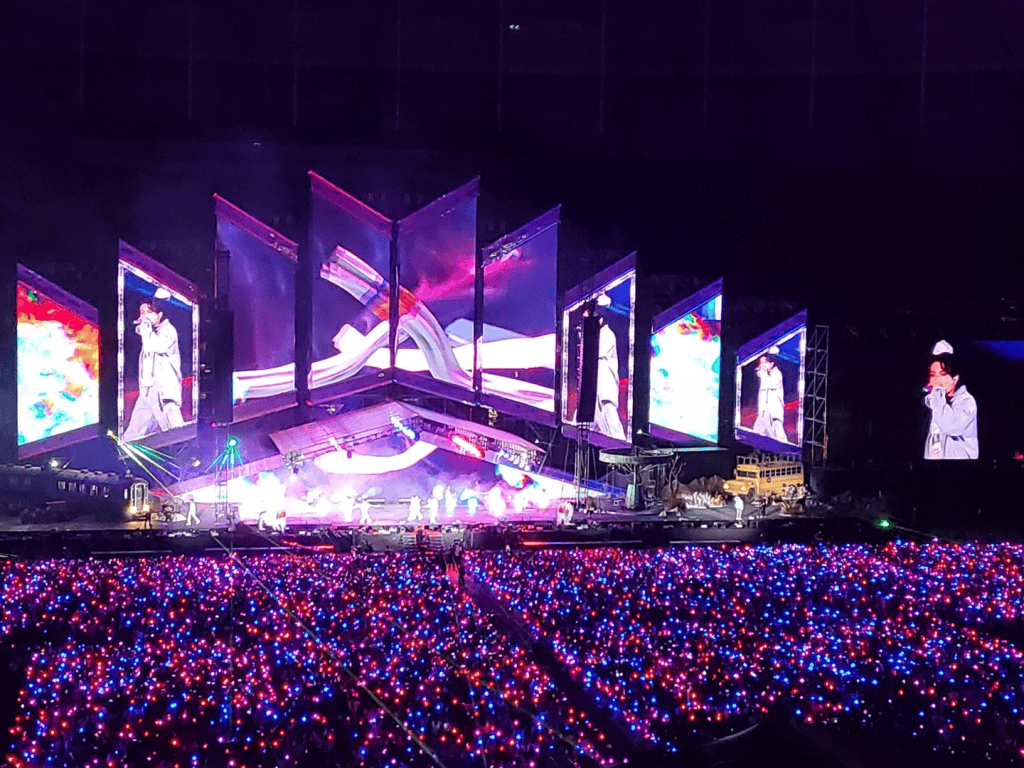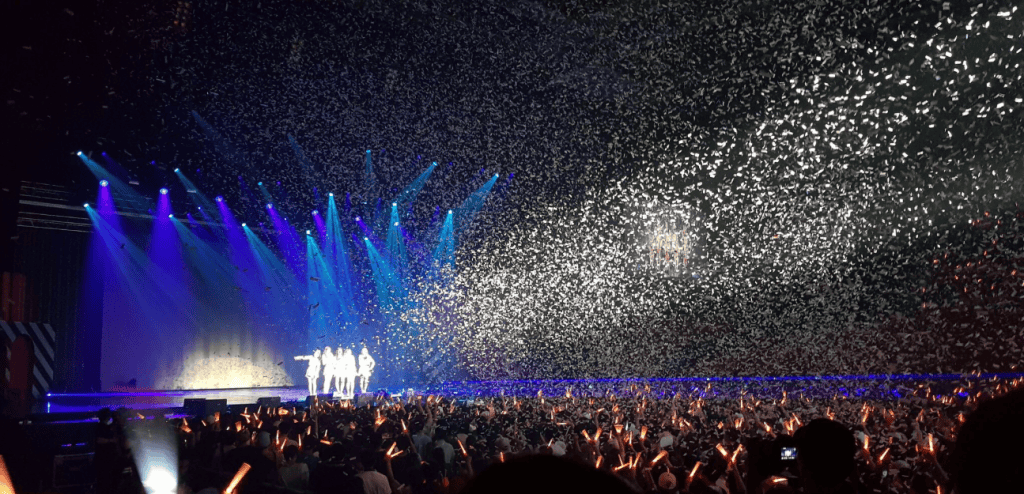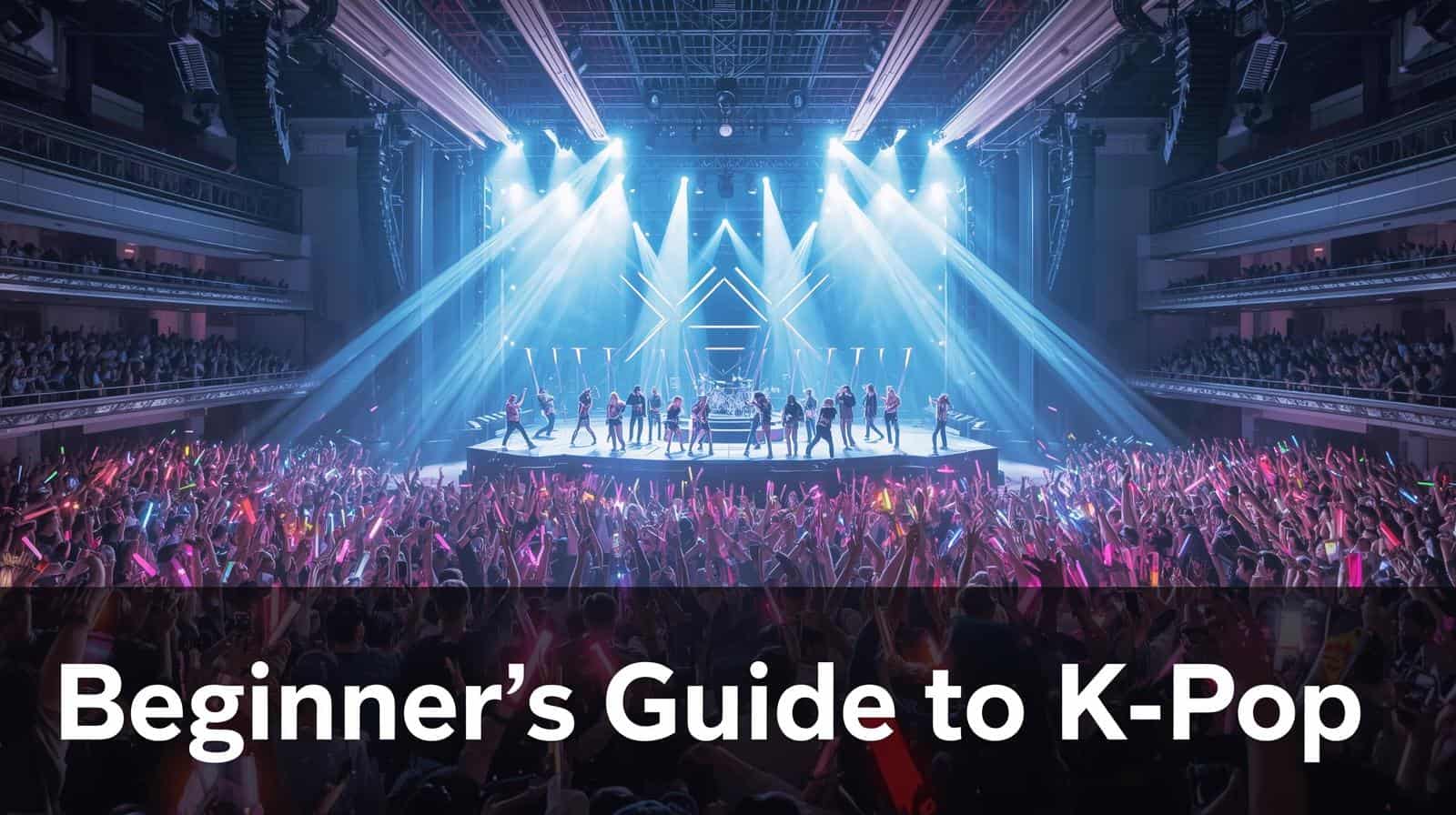What Is K-Pop and Why Is It So Popular?
K-Pop, short for Korean pop music, is more than just catchy tunes and sharp dance moves – it’s a cultural wave that has taken over the world. With its blend of addictive music, dazzling performances, stylish visuals, and strong fan engagement, K-Pop has built a global community unlike any other.
From BTS and BLACKPINK to new groups debuting every year, K-Pop idols are not just singers but performers, entertainers, and cultural ambassadors. The industry’s polished production and intense training system have created a music genre that captivates fans from Seoul to São Paulo.

The Unique World of K-Pop Fandoms
Fan Clubs and Fan Names
Every K-Pop group has an official fan club with a special name, like ARMY for BTS or BLINK for BLACKPINK. These names represent a sense of belonging and identity among fans.
Lightsticks and Concert Culture
Fans bring official lightsticks to concerts, creating a stunning ocean of synchronized lights. Each group’s lightstick is unique, making concerts an unforgettable visual experience.

Online Communities and Streaming
K-Pop fandoms thrive online. Fans stream music videos to boost chart rankings, organize fan projects, and share updates on platforms like Twitter, Weverse, and TikTok.
K-Pop Concerts and Live Performances
What to Expect at a K-Pop Concert
Attending a K-Pop concert is like stepping into another world. From the moment you enter the venue, you’ll see fans dressed in merch, holding banners, and preparing their lightsticks. Concerts are a mix of high-energy dance performances, live vocals, fan interactions, and even personal talk segments where idols share stories with the audience.
Unlike many Western concerts, K-Pop shows often include elaborate stage sets, costume changes, and carefully designed fan experiences. It’s not just about music – it’s about creating memories.

Fan Chants and Fan Projects
One of the most unique aspects of K-Pop concerts is fan chants – synchronized shouts that fans yell during specific parts of songs. These chants are often practiced before concerts and create a sense of unity.
Fans also organize fan projects, such as holding up slogans, distributing banners, or surprising idols with coordinated light events. These efforts show the deep love and dedication of the fandom.


Global Tours and Ticket Tips
K-Pop is no longer limited to Korea – idols tour worldwide, filling stadiums in Los Angeles, London, and beyond. Tickets can sell out in minutes, so fans often prepare by signing up for presales, joining fan clubs, or monitoring social media announcements.
Pro tip: If you’re attending your first concert, bring comfortable shoes, hydrate, and don’t forget your lightstick!
Understanding K-Pop Culture Beyond Music
Fashion and Beauty Influence
K-Pop idols set trends in fashion and beauty. From bold stage outfits to everyday airport looks, fans often adopt their idols’ style. K-Beauty brands also collaborate with idols, making skincare and makeup part of the K-Pop lifestyle.


Variety Shows and Idol Personalities
Beyond music, idols appear on variety shows where they play games, cook, or show off hidden talents. These appearances let fans see a more personal and funny side of their favorite artists, strengthening the fan-idol bond.
Social Media and Direct Fan Engagement
Platforms like Instagram, TikTok, and Weverse allow idols to interact directly with fans. Live broadcasts, selfies, and behind-the-scenes updates make fans feel connected to their idols’ daily lives.
Tips for New K-Pop Fans
- Start by exploring a few groups instead of trying to follow everyone at once.
- Learn basic fan chants – it makes concerts more exciting.
- Respect other fans and the idols’ privacy.
- Don’t feel pressured to buy every album or merch – enjoy at your own pace.
Embracing the K-Pop Experience Worldwide


You don’t have to be in Seoul to enjoy K-Pop. Join online fan communities, attend local K-Pop dance workshops, or watch live-streamed concerts. Many cities also host K-Pop nights at clubs, cultural festivals, and fan gatherings.
K-Pop is more than music – it’s a global culture of connection, creativity, and joy. Whether you’re cheering with thousands at a stadium or streaming a new comeback at home, you’re part of the wave.

Leave a Reply